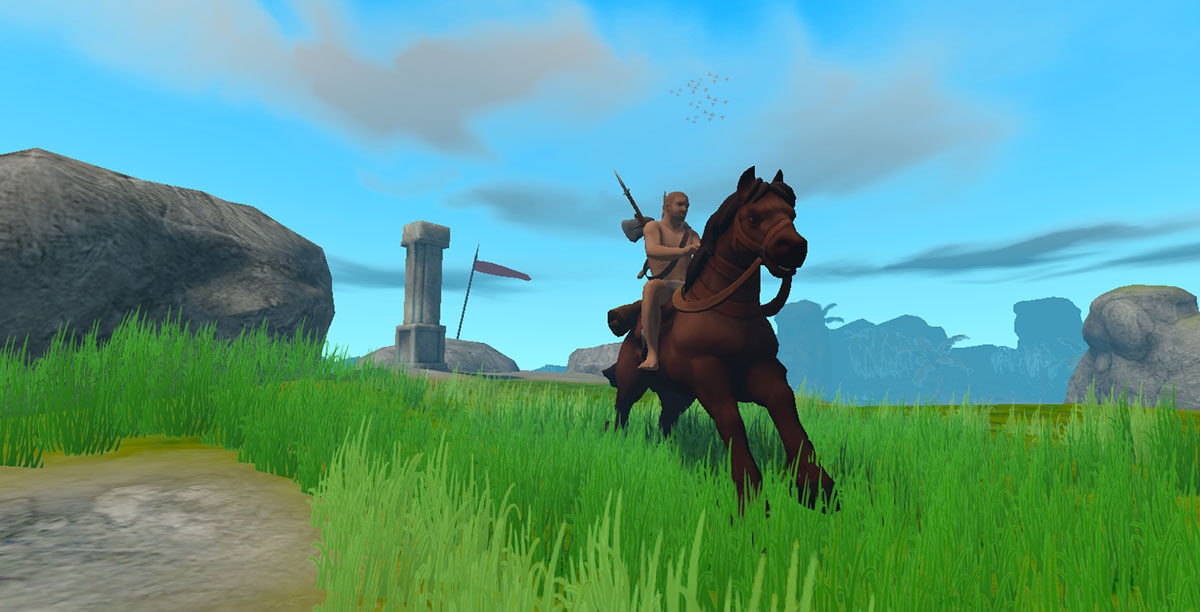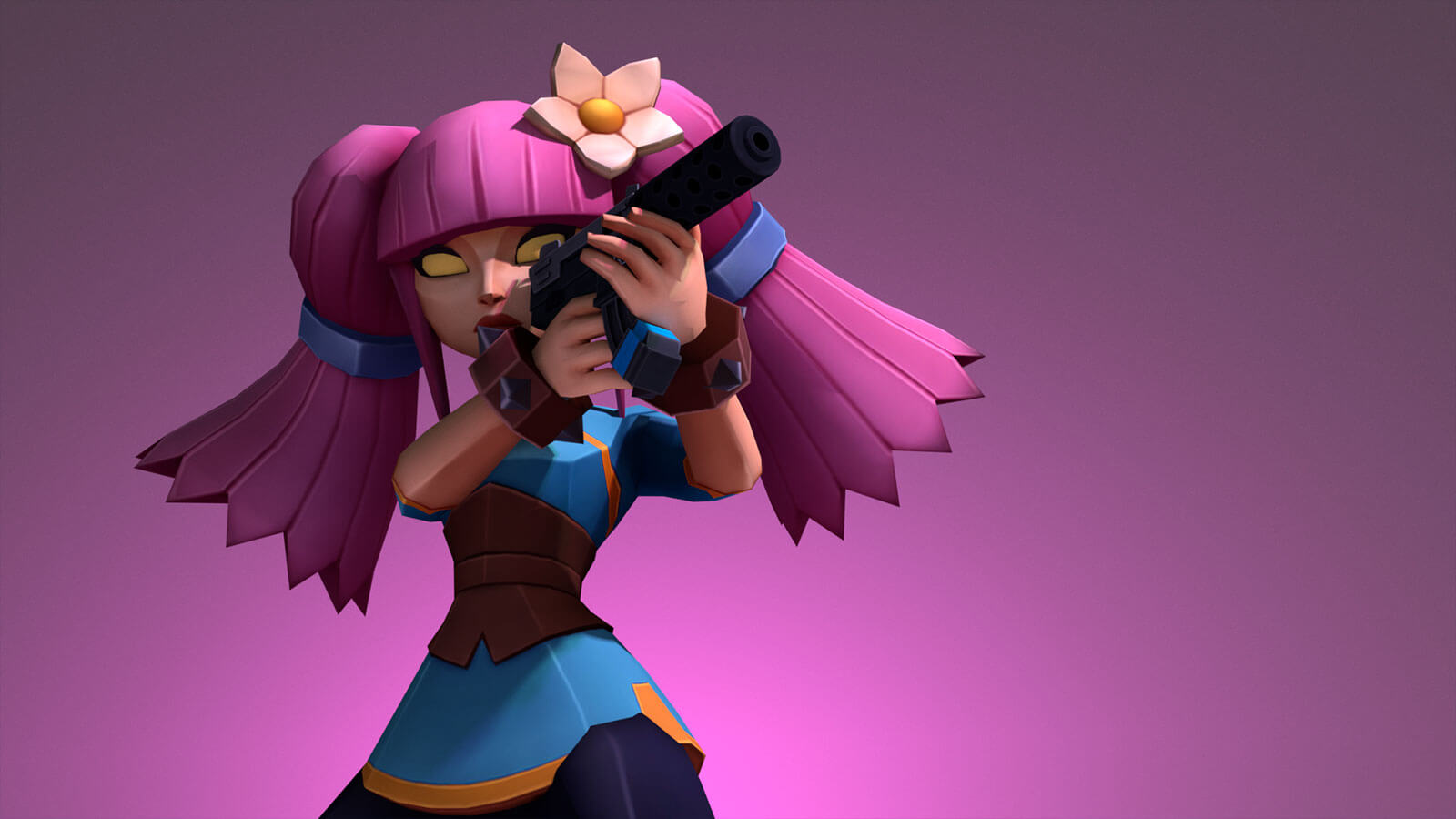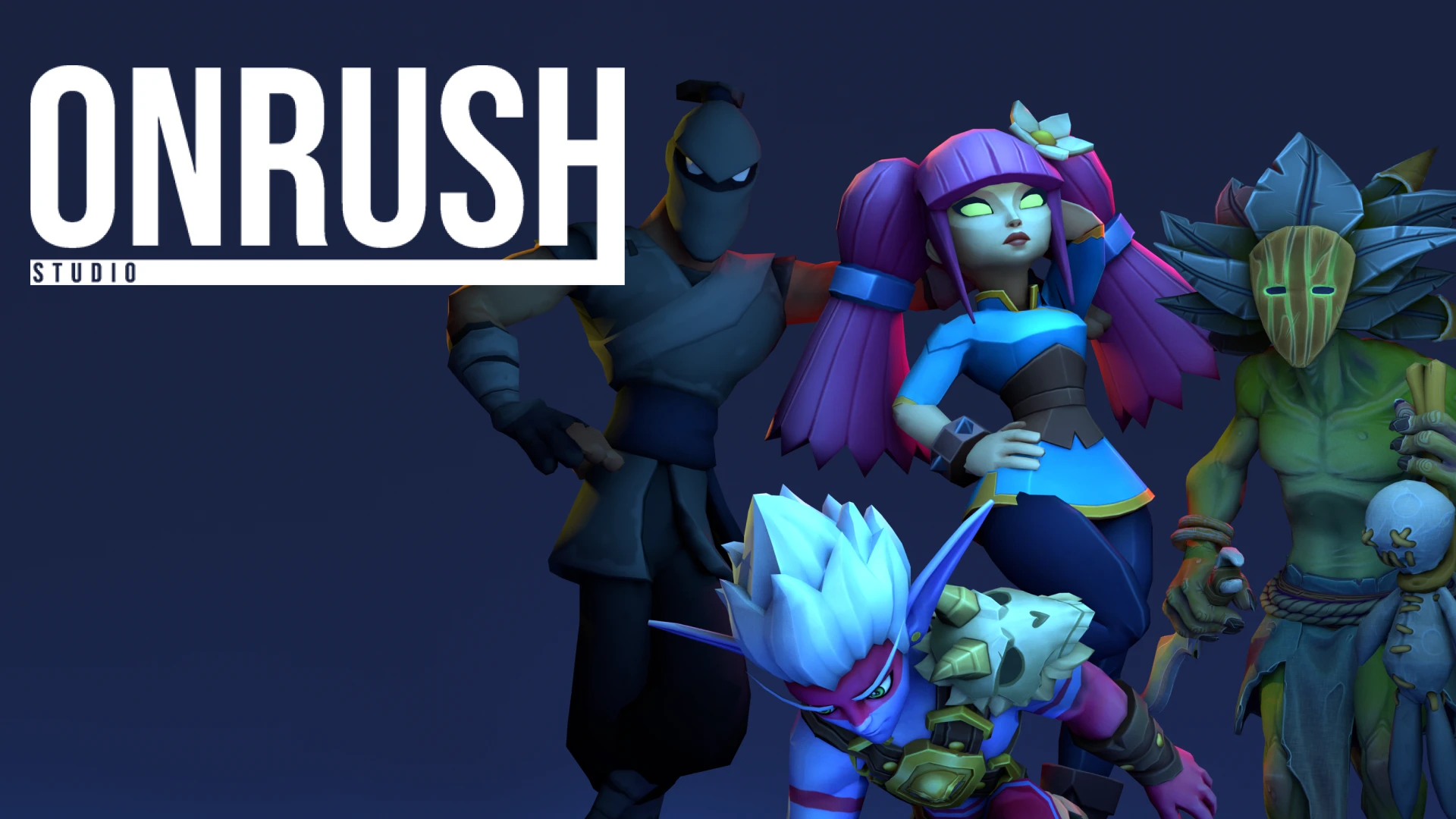The web is home to countless talented developers, and OnRush Studio proudly stands among them. Known for global hits like Venge.io, Tribals.io, Arcane Archer, Fishing League, and more, this is a studio that has truly earned its stripes. I sat down with founder Cem Demir to discuss how he got started in game development, the challenges of maintaining successful titles, and what the future holds for OnRush Studio and its players.
Could you tell the people who you are and what you do?
I'm Cem. I'm the owner of OnRush. We’re a small studio based in Amsterdam, and we develop games for both web and mobile.
How long have you been doing this? Did you start based on your education or was it passion?
I think for about five years now. I started in 2020. It was probably a combination of both. I studied physics, but I was working in a digital advertising agency at the time. Then there was this popular game called Agario. I think it’s still popular, but back then it was definitely a big deal. It’s a web game, and I thought, “Hey, maybe I can use this technology to make my own games.” It was in JavaScript. I created a first-person shooter game, and that’s really how it all began. In 2020, I made my own web game, and that was the start of OnRush.
A lot of your games are on Poki. How did that partnership come to be?
Around 2022, they reached out to me and said they wanted one of our games on their platform. That’s how it all started. The partnership has been pretty good. They support us in different ways—financially, with ideas, and in general.
What kind of advice do they give you?
They give insights to make your game better for the web audience. Like optimizing it for web browsers. They understand the nature of the web and demands of web game players. Most game developers are not familiar with metrics like conversion to play or UX differences between desktop and mobile. On the web you have to deal with so many vectors at the same time. Working with a partner like Poki helps you to understand those things clearly.

When designing your games, what is the most important thing to get right?
I’m obsessed with the core loop and UX. These are the two things I think about the most. I’ve destroyed so many games because the core loop wasn’t there. I prototype a lot, and if the loop isn’t working, I just kill the project. The game has to be easy to play immediately, but also deep enough to keep players engaged. The core loop needs to be addicting enough to make people want to keep playing.
When do you decide to scrap prototypes?
It’s mostly based on gut feeling, plus playtesting. I give the game to friends and watch how they play. We also use Poki’s play test tool to see how players engage with it. If the core loop is really strong, players get into this state where they’re so focused they don’t even notice me talking to them. That’s a good sign. But UX also has to be right. If they struggle with controls or do things unintentionally, that’s a problem. I don’t think there’s a metric that can truly measure the balance of frustration and reward in a game. It’s emotional and complex, and I haven’t found a way to prove it mathematically.
Any tricks for player retention?
If the core loop is good, then you have an engaging game—but you also need to build a meta around it so players keep grinding, progressing, and coming back. We use similar database structures across our games: leaderboards, multiplayer features, and communities. Multiplayer is especially powerful for engagement—it changes the game experience completely. We build communities around most of our games so we can listen to players, learn from them, and think like them. This helps us keep retention and engagement high.
How do you manage expectations and updates for big games like Venge.io?
It’s always tricky. Every time we make an update, we get mixed reactions. Some people hate it, some like it, and some just find bugs. Everyone has different opinions, so there’s no way to please everyone. After each update, the general chat fills with all kinds of messages—complaints, bug reports, and praise all at once.
I’m not even sure if we’re “managing expectations” in the perfect way, but we try. It’s hard to tell because it’s such a tricky balance. What we focus on is listening to feedback and trying to implement it in a meaningful way. I like this phrase from Mark Pincus, the owner of Zynga: “What will our players thank us for?” I try to think in that mindset all the time. Will players thank us for this update, or will they hate it? If it feels like something they’ll appreciate, we go ahead. The goal is to deliver updates where players genuinely say, “Thank you for adding this to our game.”

How do you come up with ideas for new projects?
We usually get inspired by other games, different implementations, or platforms. Sometimes we combine ideas from multiple games into one. Maybe we see an opportunity to bring an idea to a new platform or merge it with another concept. Inventing something completely new is tricky and messy, so we prefer to use proven methods and improve them. We’re not aiming to be unique for the sake of it—our goal is to give players a better experience if possible. Hopefully, we can make at least one part of the idea better than before.
Is your Discord profile picture a teaser for a new game?
Yes. It’s a third-person football game for mobile. I’d rather keep the details private. It’s a fun and unique concept, especially for mobile. It’s already been released on mobile and has 500,000 downloads. We plan to bring it to the web soon.
What are your predictions for the future of web gaming?
It’s exciting to think about. Mobile is growing, but the web has always been super accessible. I think the web will unlock even more with upcoming technologies. You see changes like iOS giving more access to web features. My hope is that more people will realize they can play games directly in their browser. There’s a lot of untapped potential. Platforms like Discord, Poki, and Ray Browser are pushing the limits of the web and giving developers more exposure. I hope we’ll see more high-quality web games and more investment in the space. I’m not great at predictions, so I’d call this more of a hopeful future than a forecast.
Anything you’d like to say to the Ray Browser players?
Web players are different from players on other platforms. They’re open, feedback-driven, and they really care about web games. I want to thank them for playing and for constantly giving us feedback. They seem a bit more technical and more community-focused than mobile players. On the web, there’s more interaction between developers and players, and that feels special.
Would you like to try the games of OnRush Studio out? You'll get the best performance using Ray Browser. Make sure to join our Discord server to find people to play and talk with!
 Download Ray
Download Ray



.webp)